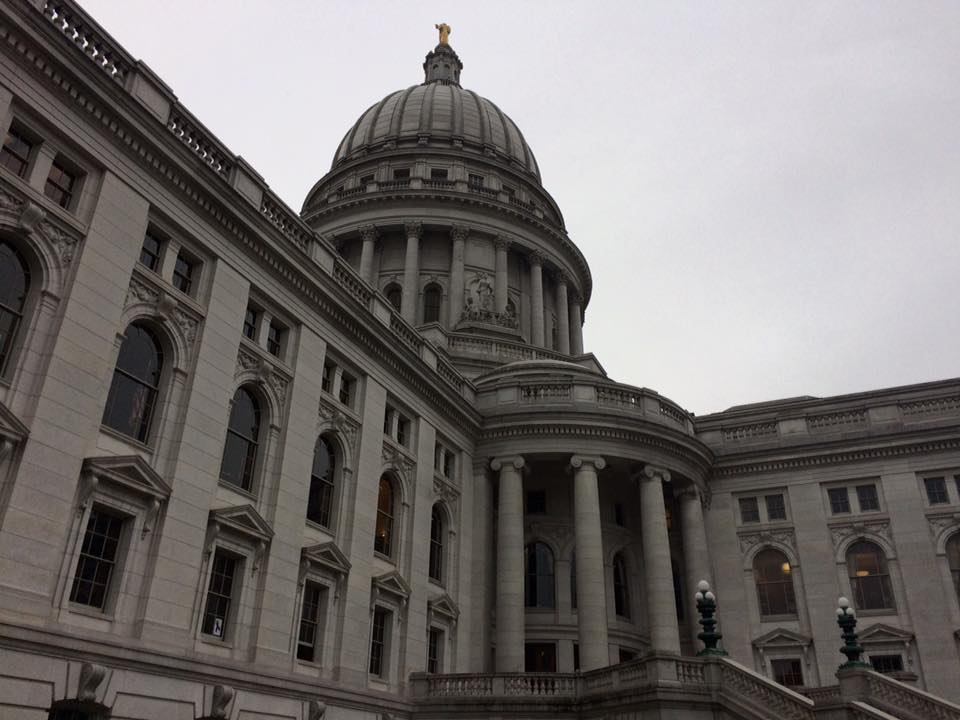Politics
GOP plans for spending federal stimulus may not be allowed

MADISON, Wis. (AP) — The majority of Wisconsin Republicans’ plans for spending $3.2 billion in federal stimulus money either may not be allowed under the law or might have to be repaid, according to nonpartisan analyses of the bills that are moving quickly through the Legislature.
Republicans are moving to pass bills that would spend the federal money as they want, rather than as Democratic Gov. Tony Evers intends. The law gives the governor control over most of the money and he has provided few details on how he intends for it to be spent. Evers has signaled he will veto the Republican measures.
The Legislature’s Republican-controlled budget-writing Joint Finance Committee passed a package of 11 bills on party line votes following a hastily called hearing Wednesday with just a day’s notice. Republicans argued the bills are their attempt to reach a compromise with Democrats.
“Our goal with these bills is to work with the governor,” said Republican Senate Majority Leader Devin LeMahieu. “Working together we can prioritize fund to those hit hardest by the pandemic.”
Democrats accused them of being hypocritical and glomming onto Evers’ ideas.
“It seems to me Republicans in Wisconsin have lost a guiding philosophy,” said Democratic Rep. Evan Goyke.
The Legislature must have a role with the governor in spending the federal money, LeMahieu said. It’s also important to determine how the federal money is spent as the Legislature works on crafting the next two-year state budget which begins in July.
The bills specify how about $2.7 billion of the state’s money would be spent, with an unspecified additional amount going toward unemployment insurance benefits.
However, the nonpartisan Legislative Fiscal Bureau determined that three of the proposals call for spending about $626 million on areas possibly not allowed under the federal law. Additionally, a proposed $1 billion property tax cut for all homeowners in Wisconsin and money earmarked for unemployment insurance may have to be repaid by the state, the Fiscal Bureau said.
The Fiscal Bureau said it appears that the federal law would not allow for the Republican proposals to retire $250 million in bonds used for transportation projects; $308 million in loans for local road projects; and $68 million to replace a statewide public safety communication system and expand the number of psychiatric beds at Sacred Heart Hospital in Eau Claire.
The federal law generally allows for the money to be spent by the end of 2024 for responding the coronavirus pandemic; replacing revenues lost due to the pandemic; investing in water, sewer and broadband infrastructure; paying essential state workers up to $13 an hour; and paying non-government entities that transport passengers and cargo for the government.
However, specific guidelines on what the federal money could be used for have not been issued, leading the Wisconsin Fiscal Bureau to say it’s unclear in many circumstances whether the Republican bills would be allowed.
Given that there’s no federal guidance yet, concerns that the money won’t be spent as proposed is “based on speculation at this point,” LeMahieu said.
Republican spending proposals that would be permitted, according to the Fiscal Bureau, included $500 million for broadband expansion; $200 million for small businesses; $150 million for nursing homes and assisted living facilities; $75 million in tourism grants; $61 million to combat water pollution; and $50 million for rural economic development.
Even if the Legislature passes the measures, perhaps as soon as next week, the bills face a likely veto by Evers. Asked about GOP plans to put forward their own proposals, an Evers spokeswoman referred to his veto of a bill that would have required the Legislature to sign off on how the money is spent.
Evers last week said that he plans to direct $600 million of the federal money to help small businesses; $50 million for the tourism industry; $200 million to upgrade infrastructure, including broadband access; and $500 million on pandemic response efforts.


Jeff blakeley
April 8, 2021 at 2:39 pm
How much of the money gets put into pork barrel accounts and Evers’ pocket? What’s left over for the people of the state? Follow the money and you’ll find the corruption every time.